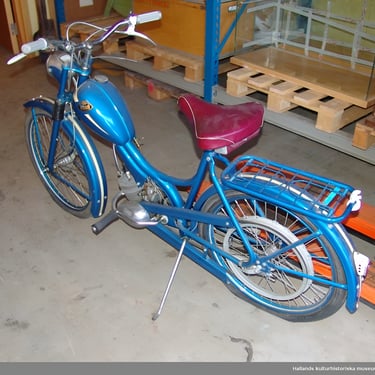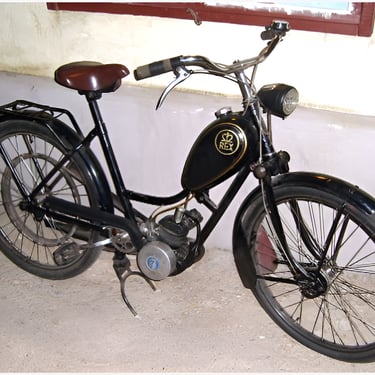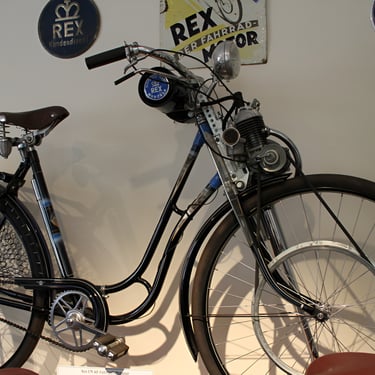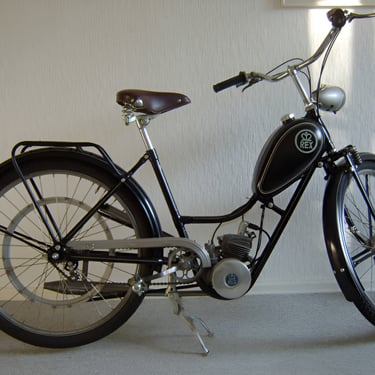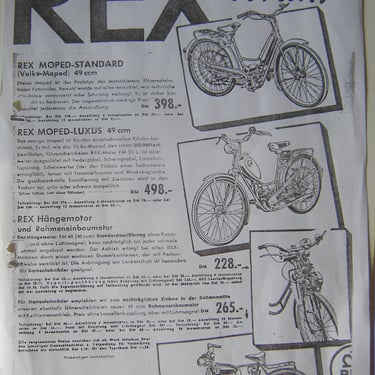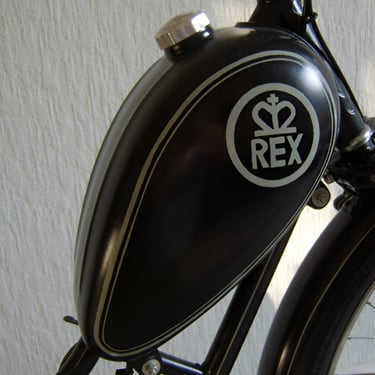An In-Depth Exploration of the Rex Motorcycle Marque: History and Legacy
The article provides an in-depth exploration of the history and legacy of the Rex motorcycle marque, tracing its origins and development in the United Kingdom, Sweden, and Germany.
GERMANY UNITED KINGDOM REX TWO STROKE1950'SVINTAGE MOPEDS
9/5/20243 min read
An In-Depth Exploration of the Rex Motorcycle Marque: History and Legacy
The Rex motorcycle marque boasts a rich and varied history, with its roots in the United Kingdom, Germany, and Sweden. Over the years, the name "Rex" has been associated with different manufacturers, reflecting the diverse nature of the motorcycle industry in the early to mid-20th century.
Rex Motorcycles of Birmingham (1900-1921)
British Rex motorcycles were produced by the Birmingham Motor Manufacturing and Supply Co., which operated from 1900 to 1921. This marque represents one of the earliest examples of motorcycle manufacturing in the UK. The company was renowned for its innovative designs and engineering prowess during the nascent years of motorcycling. Rex motorcycles from this period were known for their robust construction and reliability, making them popular among early motorcycling enthusiasts.
Rex-Acme and the Racing Legacy
In the post-World War I era, Rex merged with Acme to form Rex-Acme, a partnership celebrated for producing competitive racing motorcycles. Rex-Acme motorcycles gained a reputation for speed and agility, particularly at the famous Brooklands racing circuit. Bernard Hieatt, a notable racer of the time, was associated with the Rex-Acme brand, further enhancing its reputation in the racing community. This period marked a high point for the brand, as it became synonymous with performance and innovation in the racing world.
Rex of Halmstad, Sweden (1908-1957)
The Swedish iteration of Rex motorcycles began with AB Maskinfabriken Rex in Halmstad, which started producing bicycles in 1896 before transitioning to motorcycles in 1908. This version of Rex focused on creating practical and reliable motorcycles suited for the Scandinavian market. The Swedish Rex motorcycles were known for their durability and were a common sight on Swedish roads until the brand ceased motorcycle production in 1957. This branch of Rex is remembered for its contribution to the development of motorcycling in Sweden, emphasizing utility and dependability.
Rex in Germany and Beyond
In the aftermath of World War II, Germany faced significant economic and infrastructural challenges. The need for affordable and efficient transportation was paramount, leading to a boom in the production of small, economical vehicles, including mopeds and scooters. During this period, many German companies, including Rex, focused on producing lightweight and practical motorcycles to meet the demands of the population.
Rex's Transition and Production
Originally known for its pre-war motorcycle production, Rex adapted to the post-war market by concentrating on smaller, utilitarian models. The company capitalized on the need for personal transportation that was both economical and easy to maintain. This shift reflected broader trends in the motorcycle industry across Europe, which moved towards producing vehicles accessible to the general public.
Product Offerings
The post-war Rex motorcycles were characterized by their simplicity and efficiency. These models typically featured small-displacement engines, making them ideal for urban commuting and short-distance travel. The focus was on reliability and affordability, which helped Rex maintain a presence in the competitive post-war market.
Legacy and Impact
Rex motorcycles of this era contributed significantly to the motorization of Germany during the economic recovery. They provided a crucial link in personal mobility, enabling individuals to commute to work and travel more freely. The brand's commitment to producing practical and reliable motorcycles helped solidify its reputation in the German market.
Conclusion
The Rex marque' adaptation to the post-war economic climate highlights its resilience and ability to meet consumer needs during a challenging period. Rex's contribution to the era's transportation solutions remains a notable part of its legacy.
In more recent years, the Rex name has been associated with a German brand that sources scooters from Asian manufacturers, primarily Baotian. These scooters are marketed under the Rex brand in Europe and are known for being affordable and accessible options for urban commuting. This modern iteration of Rex continues the brand's legacy of providing practical transportation solutions, albeit in a different form than the original motorcycles.
Final Thoughts
The Rex motorcycle marque is a fascinating study of how a brand can evolve and adapt over time. From its early days in Birmingham to its racing successes with Rex-Acme and its practical Swedish models, Rex has left a lasting impact on the motorcycle industry. Today, the name lives on in the form of scooters, continuing to offer mobility solutions to a new generation of riders.
